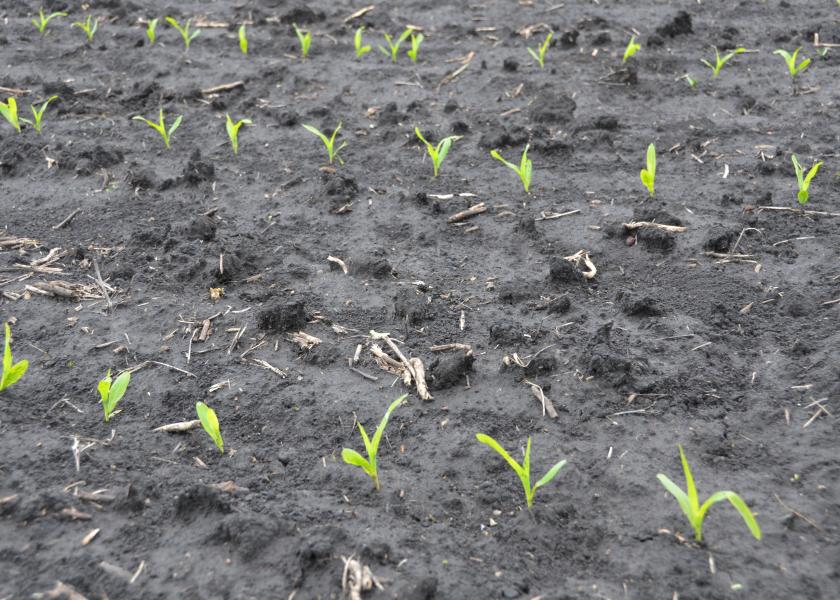As Wet Weather Benches Planters, Farmers Eyeball Shorter Maturity Crops

Rain in the 10-day forecast puts farmers in the Midwest at a screeching halt—and even further behind than before. USDA’s Crop Progress report last week put farmers in the Midwest and Mid-South in double-digit deficits in certain crops compared to the 5-year average.
“The numbers tell the story… and it’s not pretty,” Planalytics explained in a recent news release. Corn and soybeans are lagging behind but they’re not the only ones. Cotton, rice, spring wheat, sorghum and barley are also falling behind their 5-year averages.

According to experts, it might not take farmers as long as you think to get caught up. If Mother Nature cooperates, farmers can plant all of the U.S. corn acres in 14 days and soybean acres in another 14 days.
“In 2009 we had historically late planting but had, at the time, record corn yields,” says Scott Irwin, economist with Farmdoc Daily at University of Illinois. “On the other hand, the earliest planting on record in Illinois was in 2012 and drought torched the crop and put yields at just over 100 bu. per acre. Planting date is just one of many factors that impacts corn yield.”
Planting date could still get pushed back even further.
“The next two weeks are expected to bring continued storms for the Plains and Corn Belt states, with several inches of rain likely on top of already saturated ground,” according to Planalytics.


Farmers need to be read to take advantage of small windows of opportunity in the next couple weeks. However, it’s important to be mindful of field conditions and know the unique characteristics hybrid or variety you’re planting.
“I know that it is an emotional decision [when faced with late planting] but the best plan for growers is to stick with their current plan [for hybrids],” said Jim Schwartz, Beck’s Hybrids director of Practical Farm Research and agronomy, in a recent agronomy blog. “You will give up some yield potential [if you switch to a shorter season hybrid] as later maturity hybrids will almost always have more yield potential than earlier maturity hybrids.”
According to Beck’s research, here is what you should expect with late planted corn:
- Hybrids planted after May 1 require 6.8 GDUs fewer per day to reach black layer
- This is the equivalent of switching from a 105-day relative maturity to a 91-day relative maturity hybrid
- Late-planted hybrids shorten vegetative growth stages but reproductive stages are largely unchanged.
However, if planting is extremely late, say after June 1, it might be best to consider other alternatives to your original hybrid lineup.
“If planting after the end of May, drying costs could overshadow the yield benefit from adapted hybrids and it may be best to switch to earlier maturities,” Schwartz said.







